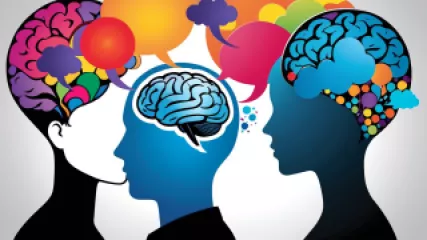Identifying and Overcoming Cognitive Biases: A Practical Guide
Have you ever made a decision that you later regretted? Or found yourself falling into the same thought patterns over and over again? These common occurrences can be attributed to cognitive biases, which are inherent mental shortcuts that can influence our judgment and decision-making processes. Understanding and overcoming these biases is essential for improving our self-awareness and making more rational choices.
What are Cognitive Biases?
Cognitive biases are systematic patterns of deviation from rationality in judgment and decision-making. They are the result of our brain's attempt to simplify information processing and make quick judgments. While these biases can be useful in certain situations, they often lead to errors and irrational thinking.
There are numerous cognitive biases that affect our perception, memory, and decision-making. Some common examples include:
- Confirmation bias: The tendency to search for, interpret, and remember information that confirms our pre-existing beliefs.
- Availability heuristic: The tendency to rely on immediate examples that come to mind when evaluating a topic or making a decision.
- Anchoring bias: The tendency to rely too heavily on the first piece of information encountered when making decisions.
- Overconfidence bias: The tendency to overestimate our abilities or the accuracy of our beliefs.
- Hindsight bias: The tendency to believe falsely, after an outcome is known, that we would have predicted it beforehand.
The Impact of Cognitive Biases on Mental Health
Cognitive biases can have a significant impact on our mental health. When we fall victim to these biases, it can lead to distorted thinking, negative emotions, and poor decision-making. For individuals struggling with mental health issues, cognitive biases can exacerbate symptoms and hinder recovery.
For example, confirmation bias can reinforce negative self-beliefs and prevent individuals from challenging their negative thoughts. The availability heuristic can lead people to overestimate the likelihood of negative events and increase anxiety levels. Recognizing and addressing these biases is crucial for promoting mental well-being and improving overall functioning.
Identifying Cognitive Biases
Recognizing cognitive biases in ourselves can be challenging because they often operate on a subconscious level. However, by developing self-awareness and practicing mindfulness, we can begin to identify these biases in our thought processes.
Here are some strategies to help identify cognitive biases:
- Question your assumptions: Challenge your preconceived notions and consider alternative perspectives.
- Seek diverse opinions: Surround yourself with people who have different viewpoints and actively listen to their perspectives.
- Reflect on past decisions: Analyze your previous choices and reflect on whether cognitive biases may have influenced your thinking.
- Keep a thought journal: Write down your thoughts and feelings throughout the day to spot recurring patterns or biases.
Overcoming Cognitive Biases
Once we have identified our cognitive biases, the next step is to develop strategies to overcome them. Here are some practical techniques to help mitigate the impact of cognitive biases:
- Practice critical thinking: Enhance your analytical skills by evaluating evidence objectively and considering multiple perspectives.
- Slow down decision-making: Take the time to gather all relevant information and weigh the pros and cons before making a decision.
- Engage in self-reflection: Regularly examine your thoughts and emotions to detect any biased thinking patterns and challenge them.
- Seek feedback: Ask others for their opinions and feedback to gain different insights and challenge your own biases.
- Utilize cognitive-behavioral therapy (CBT): CBT is a therapeutic approach that helps individuals identify and modify their cognitive biases through structured interventions.
The Importance of Self-Awareness
Developing self-awareness is crucial when it comes to recognizing and addressing cognitive biases. By becoming more attuned to our thoughts, emotions, and biases, we can make more informed decisions and improve our overall well-being.
Self-awareness allows us to:
- Identify patterns: Recognize recurring thoughts or behaviors that may be influenced by cognitive biases.
- Challenge automatic thoughts: Question the validity of our immediate thoughts and consider alternative perspectives.
- Cultivate empathy: Understand how our biases may impact our interactions with others and work towards being more open-minded.
- Make intentional choices: Actively choose to overcome biases and make decisions based on rational thinking rather than automatic responses.
Conclusion
Identifying and overcoming cognitive biases is a lifelong process that requires self-reflection, self-awareness, and a commitment to improving our decision-making skills. By understanding the common cognitive biases that affect our thinking and implementing strategies to mitigate their impact, we can enhance our mental health, improve our relationships, and make more rational choices.
Image source: Shutterstock






